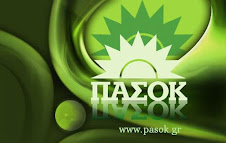
Nicolas Sarkozy,the French president, today flew to Syria to urge President Bashar al-Assad to pressure Hamas for a ceasefire in Gaza,as the fighting with Israel entered its 11th day.
"I know the importance of Syria in this region and its influence on a number of players," Sarkozy said in Damascus. "I don't have any doubt that President Bashar al-Assad will throw all his weight to convince everyone to return to reason."
Assad condemned the Gaza offensive. "We have to immediately stop the barbaric Israeli aggression in Gaza," he said at a joint press conference with Sarkozy. "Thirty percent of the victims are children under the age of 10, and Gaza is now a concentration camp."
Sarkozy went on to the Lebanese capital, Beirut, where the Shia movement Hizbullah, backed by Iran, has been expressing solidarity with Hamas, but appears unlikely to launch a second front against Israel.
The French president's visits followed talks in Egypt, Israel and the Palestinian West Bank, where he underlined the EU's urgent insistence on an immediate ceasefire.
In another development, a Hamas delegation flew from Damascus to Cairo for talks on the crisis. Its officials were meeting General Omar Suleiman, the Egyptian intelligence chief, who has brokered previous ceasefires in Gaza and tried to bring about reconciliation between Hamas and its Fatah rival.
Egyptian officials were tight-lipped about the talks, saying any pubic exposure could damage a highly deliciate negotiation. The meeting will be Hamas's first contact with a key regional player since fighting began on 27 December.
In Israel, the government made clear that preventing a new Hamas arms buildup was the "necessary foundation" of any new truce. "That is the make-or-break issue," insisted Mark Regev, spokesman for the prime minister, Ehud Olmert. "Under no circumstances will we agree to a new calm that will allow them [Hamas] to increase their range to 60km so we have rockets falling on the outskirts of Tel Aviv."
Diplomats said Turkey was playing a significant role behind the scenes. Ankara has already publicly offered to convey any Hamas ceasefire proposal to the UN.
It is understood senior Turkish officials met the leaders of Hamas and the smaller, more militant Islamic Jihad faction in Damascus last week. Both are boycotted as terrorists by all western countries.
Recep Tayyip Erdogan, the Turkish prime minister, is trusted by Hamas because of his Islamist credentials. "The Turks have been talking to all the right people," said one diplomat based in the region. "They are seen as a neutral broker. They are professional and sincere."
In a further development, the UN's special co-ordinator for the Middle East peace process, Robert Serry, was summoned to New York where Arab countries are drafting a security council resolution demanding an immediate end to "Israeli aggression" in Gaza. With UN forces already deployed on Israel's borders with Syria and Lebanon, one possibility being mooted is creating a new one for the border between Gaza and Egypt.
David Miliband, Britain's foreign secretary, flew to New York to take part in the UN debate on the crisis.
"If Sarkozy has something that can pass the security council then the pressure may start on both sides," Ali Jarbawi, a professor of political science at Birzeit University, told the bitterlemons.org website.
Signs have begun to emerge of the shape of a potential deal on a truce and new border arrangements, though analysts said these were still unlikely to be agreed quickly.
But hard bargaining lies ahead. Israel wants its offensive to end with an agreement imposed on Gaza by the international community rather than a new ceasefire directly with Hamas. "We don't sign agreements with terror," Tzipi Livni, the foreign minister, insisted after meeting an EU delegation yesterday. "We fight terror."
Israel wants Egypt to prevent smuggling into Gaza from its border and its crossings into the territory operating under international supervision. It insists on the presence of the Palestinian Authority (PA), run by Abbas's West Bank-based Fatah movement.
"The international community will initiate the agreements and impose it on Hamas," the Ha'aretz newspaper quoted a senior political source in Jerusalem as saying. "The agreements will be with both the PA and Egypt and then if Hamas will not agree it will pay the price, mostly by even greater isolation."
Israel has suggested the US might help Egypt by sending combat engineers to reinforce the border. As well as EU and PA officials deployed at the Rafah crossing into Egypt, as in the past, it also wants US, French and Arab support for a UN-backed resolution granting Israel the right to respond to any Hamas violations.
Under a 2005 agreement, Rafah can only be opened to normal traffic if EU observers and PA forces are at the border, which is also monitored by Israel. But the PA presence ended when Hamas took over Gaza from Fatah in June 2007. The challenge now will be to find a way to allow them back at a time that relations between the two factions are at a nadir.
Western diplomats said the US, EU and Arab League were now looking at a four-point agenda: stopping arms smuggling into Gaza; financial support for Egypt in controlling the border and detecting tunnels; international monitoring, with the UN, EU and Arab forces assisting Egypt; and the reopening of all crossing points into the Gaza Strip – a key Hamas demand.
Provided by:






